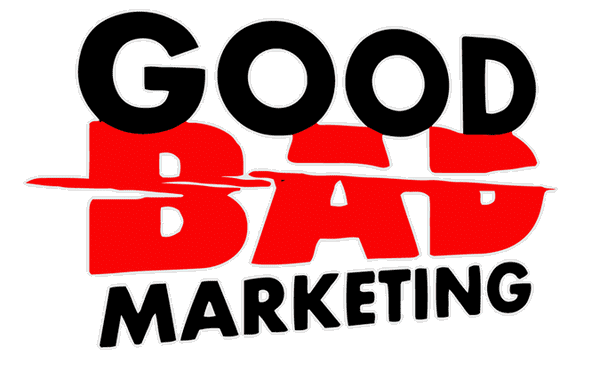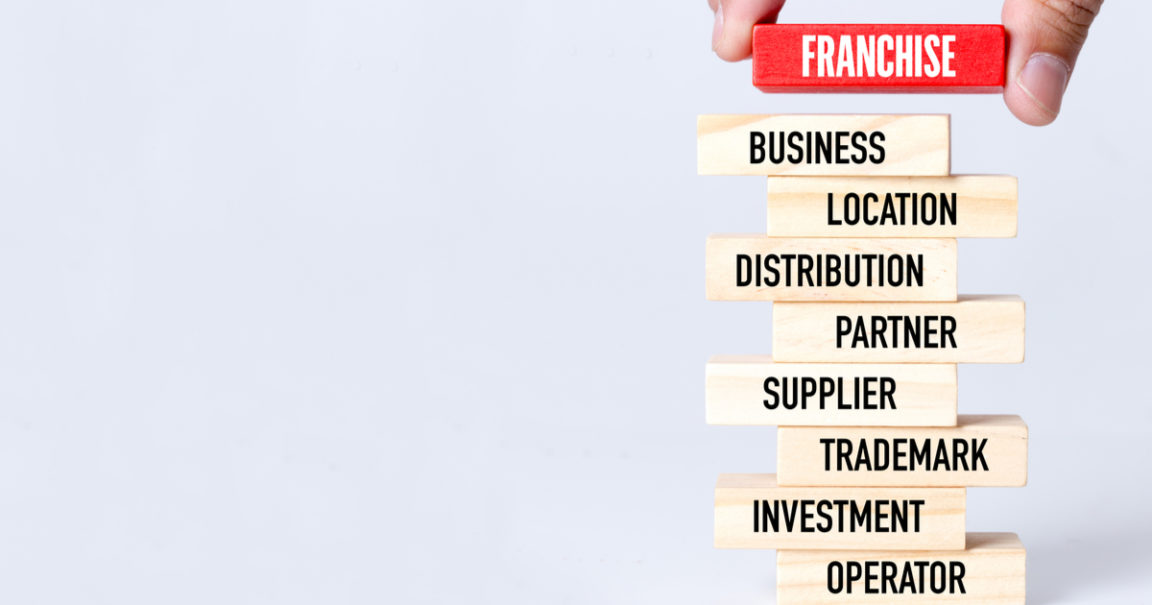The business industry has been growing exponentially in recent years. For big and small enterprises alike, many are now considering starting their own gig for a range of reasons. For instance, it can mean better time management and a higher cash inflow than working in an office for 8 hours a day – just to be paid the bare minimum. Instead of sitting at the same cubicle for most of the day, people are asking themselves the question: “Why not open my own business and start owning my time?” Everyone seems hyped when the idea of opening a business comes up in conversation.
However, in the process of starting a business from the ground up, there are still a lot of elements to consider. For example, there’s planning, canvassing, and costing; and it can be too time-intensive thinking about it. It can even be mentally draining that everything might not fall into place despite the invested effort. From naming to branding, all factors need time for building to be able to create a strong foundation upon which the business will boom. It’s often a choice of make-or-break as risks are high when one wants to build a name of their own. Thus, other business-minded people consider opening a branch of a business that is already known so customers will easily flock in once open. Let’s talk about franchising.
What is a franchise?
Perhaps you’ve heard of franchising in your economics syllabus. First off, having a franchise is essentially a method wherein an individual buys the name of a brand and acts as an agent to sell the goods and services of that particular brand. A franchise is a popular means for budding entrepreneurs to open a business in a highly competitive industry, such as fast food or retail. One of the key advantages of opening a franchise is having access to a bigger business’s brand name, so you won’t have to do the legwork of devising marketing strategies and spending resources to catch a customer’s eye; the established brand name already does it for you.
For this kind of business model, 3 technical terms need to be remembered:
Franchisee – a business allowed to use the name of the brand and system. They are also authorized to sell the goods and services on behalf of the brand while following its terms and conditions.
Franchisor – a business granting the franchisee to operate as an agent on behalf of its brand name and also provides the goods needed for the agent to act remotely on its own.
Franchise agreement – a stipulation wherein the franchisee agrees to operate in line with the franchisor’s terms and conditions. The franchisor is granted the responsibility to do necessary tasks so there will be uniform rules in favour of the franchisor. Usually, both the franchisee and the franchisor sign a written agreement, but it can also be spoken or implied.
In sum, the 3 fundamentals of opening a franchise must be present for the business to successfully start. All three work hand in hand to be able to make sure that the agreement is secure and binding so both can go back to a stipulation if ever something goes wrong.
The Advantages and Disadvantages of Franchising
Investing your funds in a franchise has its ups and downs. Just like the typical business, your business can still fail even when using an established brand’s name. So what might go right and wrong in a franchise?
Pro 1: Laid out business plan
A franchise usually has its affiliated business plan. Unlike start-ups, you won’t have to think of composing your own business plan, decide how to decorate your store, or even consider researching for a system that can ensure the smooth flow of operations. Franchises are ready-made, so you’ll just pay and agree with the terms of the franchisor so you can have your store built pronto. The strategies of the brand are already built-up and pre-packaged, so you’ll just need to follow those guidelines for a successful business operation. You can now skip the planning headaches and have a plan laid out in an instant.
Pro 2: Fewer risks
Every business has its risk no matter how big or small. However, in securing a franchise from a big, pre-established business this tends to be of lesser risk. Given that you are now venturing into a business where you act as an agent for a big company, your product and services will already have brand recognition, so the products or services will be much easier to sell. Securing a franchise means you are paying the franchisor an amount for an already popular business, so you can attract customers even without extra marketing strategies; the company’s reputation does it for you. In contrast, start-ups must still put an effort into planning and executing their marketing methods, and there’s a larger degree of risk that it could fail. This is a fantastic reason that franchising provides unique confidence to prospective investors.
Pro 3: Established reputation
You might be wondering why franchising is now favoured by many entrepreneurs looking to make their debut in the business sector. One of the unbeatable features of adopting a franchise is the ability to use a brand name with a solid reputation, meaning attractiveness to customers even with minimal advertising efforts. The established reputation of franchisors is an asset that encapsulates hard work for many years in the industry. So, when you are paying for the brand name, ultimately you are paying for the brand recognition the business has. Usually, this costs a lot of time and effort for a business to appear reliable and prominent in the minds of customers from generation to generation. Instead of establishing your name to customers which takes years of funding, planning and risk, you can open a franchise to save this kind of expenditure instead.
Pro 4: Access to advertising and promotion
In opening a franchise, the franchisor acts as the spearhead in the day-to-day operations and marketing for the franchisee. That is, product marketing is done by the franchisor to attract more customers to the brand as a whole. The nationwide advertising makes it easier for the franchisees to reach out to customers wherever they may be. Once good advertising circulates, a greater inflow of customers is more likely to happen. Within the franchising business model, there is no need for a single franchise entity to put their own efforts into marketing; the franchisor has uniformed ads and various promotional material ready-made for them.
Conversely, there are still disadvantages in opening up a franchise. Any business model has its good and bad, so it is best to weigh these things up to ensure that there is a good return of investment and to determine whether or not franchising fits your needs.
Con 1: High franchise costs
When everything is already done for you, there is an inevitable chance that franchisors will provide you with what you need but at a higher cost. When you open a franchise, the ideas, marketing, and systems are set out already so you can start the business easier. The costs are also toppled up with land expense, infrastructure, furniture, supplies, equipment, as well as inventory. More so, franchises have ongoing fees paid to the franchisor in the form of a percentage of sales or revenue, thus shared profits. The fees get higher the more the franchise makes. So better to have a good amount of funds for the initial investment and recurring fees.
Con 2: Limited to no control
Franchisors give the set of rules and regulations to franchisees when they purchase a franchise. This means that franchisees don’t have unilateral control of the directives outlaid within the established rulebook from the franchisors, and franchisees must always abide by them. The system, marketing, and arrangements are nationalized to build the same strategies regardless of target markets and location. With this, franchisees are forced to follow this set of rules to create a uniform organization for its workers, system, and promotions. Thus, there will be a loss of uniqueness and creativity for business owners, as the franchise terms and conditions limit this.
Con 3: Supplier tie-ups
Franchisors tend to provide everything for the franchisee in a franchise. From marketing strategies and suppliers, franchisees are tied up with everything the parent company has. Say when you are in the retail industry, a partnership with suppliers is already built, even when the business has not started yet. There will be a loss of autonomy in a partnership like this, given the fact that the franchisees don’t have control over who provides them with what. So, although you may know suppliers who offer less costly goods, the mere fact that there is already a partnered supplier restricts franchisees to do business with local suppliers. It’s always the directive of the parent company that trumps everything.
Con 4: Pitfall of selling the business
The sales of the franchise still depend on the broader market and whether they are fond of your business or not. Regardless of the location, a franchise can still operate if the franchisee wants to, and this is granted by the franchisors without hesitation as they also need to expand their business. In the case where the business’s products or services aren’t sellable to customers, franchisees might want to dissolve or sell the franchise. However, the downside of having a franchise is trying to sell the business when it isn’t profitable yet. The binding contracts must be followed, in line with the terms. If ever the contract has a tenure, selling the business isn’t likely to happen and franchisees will be forced to just operate until the tenure of the contract expires. Again, there is less business flexibility and you are always fixed to the initial agreement.
Most popular franchises in Australia
In 2020, Jim’s Cleaning Group topped the list for Australia’s Top Franchise Award, followed by Smartline Mortgage Advisers, Mister Minit, Ferguson Plarre Bakehouses, and Kwik Kopy. They all did excellent jobs in the franchising sector and met the winning criteria across the following categories:
- Marketing
- Branding
- Passion
- Support
- Lifestyle
- Expansion
Other prominent names are also recognized year after year, globally speaking. Top-notch franchises like Dunkin’, Taco Bell, The UPS Store, Ace Hardware, and Planet Fitness are heavy-hitters on the long list.
Depending on personal interest and skills, one is spoiled for choice easily on what industry to buy into, given the wide selection of these available business franchises.
Franchises that flourished and flunked
As the industry of business franchises have been growing, businesses are increasingly making better profits because of their unique strategies. While other franchisors have wanted to recruit more franchisees to profit from their revenues, others have made a different approach when it comes to dealing with franchisees. For instance, McDonald’s had 34,000 outlets in 126 countries by 2017, yet the enterprise has grown over the years as they entice franchisees by offering that they pay what is only due for the business. McDonald’s created a better model to lower costs for its franchisors and customers, meaning cheaper products and services for both business owners and their market demographic. The advantage of McDonald’s’ business model is that the operating costs are relatively lower, allowing an easier flow of profits for the franchise. They allow lower fees so new franchises could use it for additional supplies to better serve the growing number of customers in their fast-food chains. This system also created business franchises to be more efficient and more profitable by incorporating low costs. The added benefit was that the business became more competitive and more successful than any other brand out there.
Moreover, Foodco Group, which owns several franchises like Dreamy Donuts, Jamaica Blue, and Muffin Break also made a breakthrough into the list of successful franchises. The company is known to have the best training model for employees, earning accolades from the Franchise Council of Australia. They intend that every franchise branch provides the best goods and services to everyone, to satisfy the public’s needs. As of now, they have already expanded into Asia and Europe, with 128 Jamaica Blue stores and 275 Muffin Break outlets in operation.
Unfortunately, other businesses have gone down in shambles. You might remember retailer TopShop Australia, a clothing store that was up against other giants like Zara and Uniqlo. The business launched in Australia in 2011 and later had to close down in mid-2017. One leading factor in TopShop’s demise is the unsuitable location it resided in. As is widely known, Australia has some of the highest rent prices and the most competitive leasing market around the world. Regardless, TopShop still opened its doors on Australia’s shores. However, the Australian market was not wholly drawn to its products, and still preferred other brands for their wardrobe. TopShop’s sales also went down fast as they did not offer standard and common jean sizes, making shopping in-store and online difficult and non-user-friendly. With sinking demand partnered with high operational and rental costs, the franchise was forced to close down.
Other worldwide business franchises like Sbarro and Quiznos also crumbled and were left to close due to a multitude of debts. Both franchises have many branches worldwide and overexpanded even in locations one would not expect. Quiznos had 5,000 locations by 2007, equating to one store being opened in one location every day from 1995. This ultra-rapid expansion rate gave the impression that Quiznos wasn’t very selective or conservative about who would or would not be approved for a franchise: clearly up for expanding and branding only. This led to disorganization and eventually a reason for the business to shut its doors.
In summation, some brands tend to have failed in the franchising approach due to overexpansion, higher rates, uncompetitive market, poor management, and problems with the location. Furthermore, franchisees often are starstruck by how big the brand name is and buy the brand alone, instead of buying the system of the brand. Franchisees can get a little overwhelmed some of the time. It must be also remembered that opening a franchise must still be managed well, even though the crux of the business is already provided.
There are a lot of factors to consider when opening a business; may it be a start-up or a franchise. From servicing costs, running a business is complicated. So, the concept of franchising has entered the business arena and introduced an easier way to open up a business. You’ll be paying for the brand name, and strategies of the mother company, however, bound by its rules and regulations that can also limit creativity and flexibility. Make sure to consider all of these variable factors when deciding if franchising is right for you.





